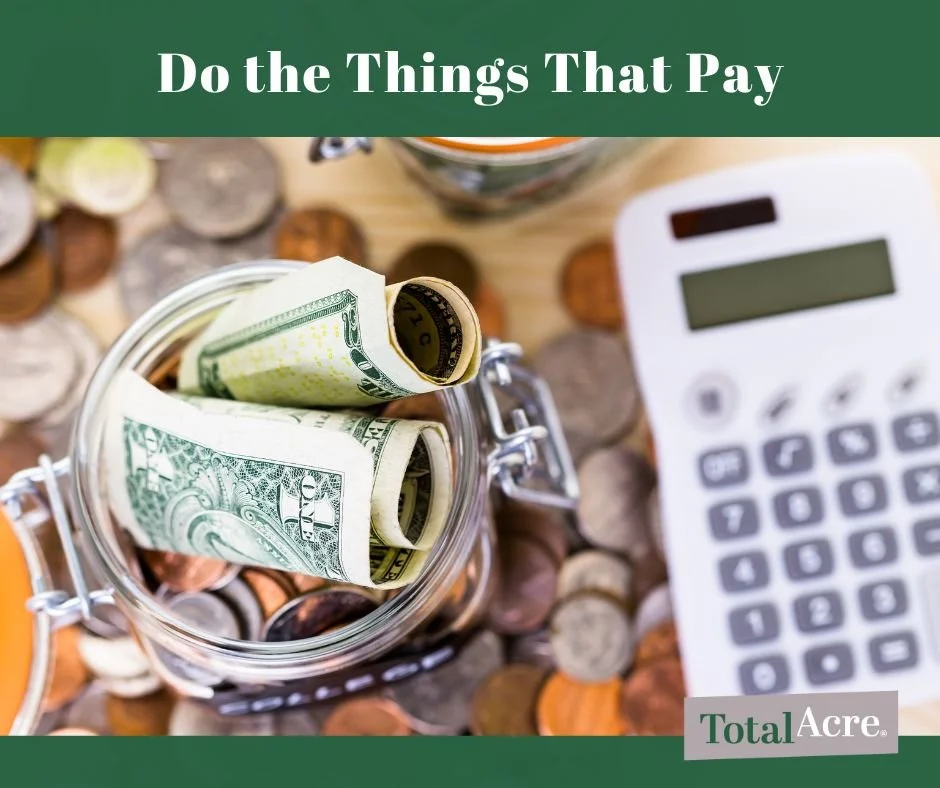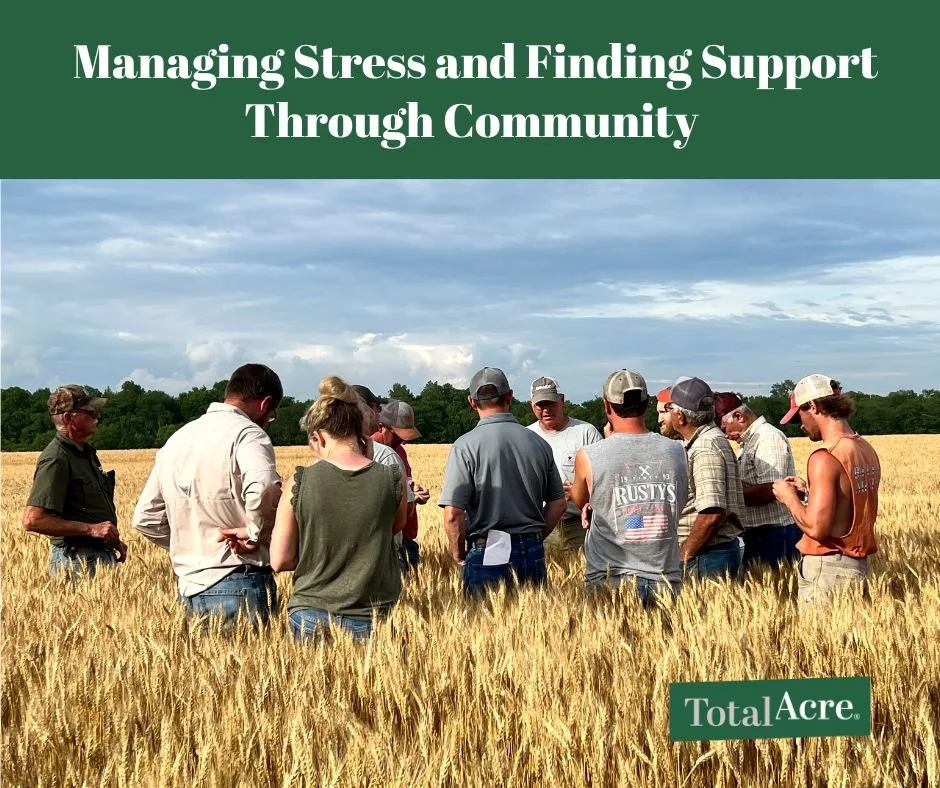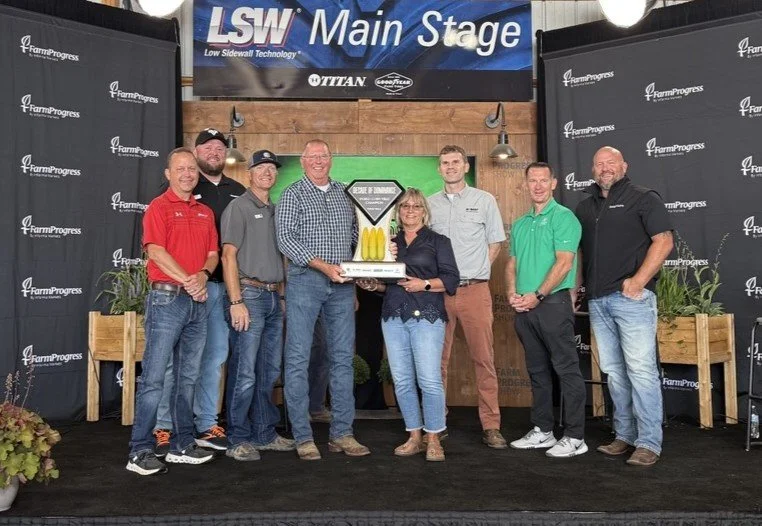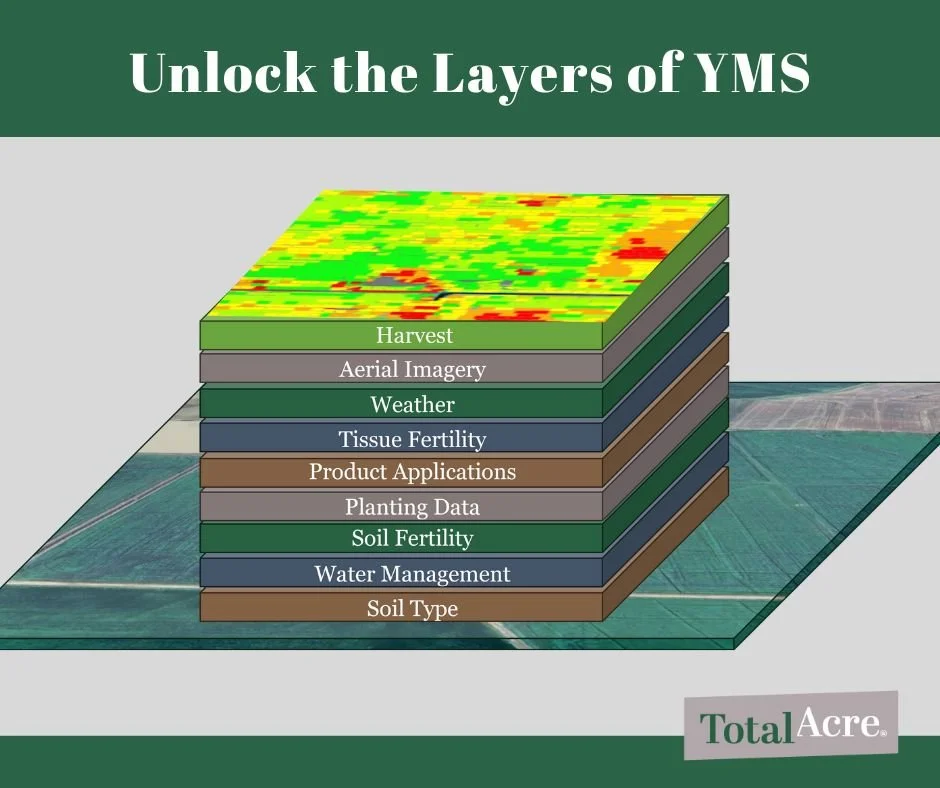A Total Acre Approach to Logistics, Agronomics & Economics for a Higher-ROI Season Ahead
As we turn the page toward 2026, one truth is louder than ever: In a tight ag economy, growers can no longer afford to throw products at a crop and hope for the best. With tight margins, weather uncertainty, and high input costs, success doesn’t belong to the farm that does the most, it belongs to the farm that does the right things.
This mindset isn’t abstract, it’s the Total Acre approach. And if the 2025 season proved anything, it’s that growers who embrace this approach are more prepared, more resilient, and more profitable.
That’s why the theme for 2026 is simple:
1. Only do the things that pay.
2. Invest in decisions backed by data, not guesswork.
3. Spend time and money on what matters: education, networking, and on-farm testing.
2025: A Season of Lessons Few Will Forget
The 2025 growing season tested nearly every region in one way or another. In the East, growers fought relentless rain and planting dates that were pushed far later than anyone preferred. Across much of the Midwest, crops struggled through stretches of low GDUs and limited sunlight at the exact moments they needed energy the most. And as if that weren’t enough, parts of the Corn Belt found themselves dealing with Southern Rust for the very first time, even in fields where it had never been a concern.
Many growers walked away from the season with a hard but valuable lesson: if you were scouting from the pickup window, you missed things that mattered. Those who didn’t get into the rows often failed to spot the earliest signs of rust or mold, losing the opportunity for a timely fungicide pass that could have protected a significant amount of yield.
What 2025 really showed us is that hope isn’t a strategy—discipline is. And as Total Acre instructor David Hula often reminds us, “You’ve gotta pick your battles.” Going into 2026, that means focusing on the decisions that return the highest ROI and letting go of the ones that don’t.
The Three Pillars of 2026 Success
Going into a financially tight crop year, every decision must run through a three-part filter:
✔ Logistics
✔ Agronomics
✔ Economics
These pillars are intertwined, and together, they guide growers toward smarter spending, more efficient management, and fewer unwelcome surprises.
LOGISTICS: Planning Ahead to Protect Profit
In a tight economy, logistics become more than just good organization. They become a form of profit insurance. The growers who plan ahead, stay flexible, and eliminate chaos are the ones who keep more money in their pockets.
One of the biggest lessons heading into 2026 is the importance of securing inputs early, but doing it strategically. Every decision should be grounded in actual farm data rather than emotion or sales pressure. Overbuying leads to waste, and under-planning often forces last-minute purchases at premium prices. During a recent grower panel in Nebraska, Total Acer Member, Brian Herbek put it simply when he talked about why he first tried RDX-N: “The logistics savings alone made it worth exploring. Then the agronomy proved it out.” That kind of thinking is exactly what this season calls for.
Equipment readiness is another area where preparation pays off. Fixing a planter in the shop in January is far cheaper—and far less stressful—than fixing it in the middle of a planting window. Clean sensors, accurate meters, updated firmware, and honest yield maps may seem like small details, but they are the kinds of details that protect thousands of dollars in potential yield.
Labor and timing require the same level of foresight. Historical GDU trends and soil temperature data should shape your 2026 timing plan, not guesses or habits. Custom applicators should be scheduled well in advance. And every plan should include enough flexibility for whatever weather surprises spring decides to deliver.
When logistics are dialed in, everything becomes more economical, with fewer emergency runs to town, fewer mistakes in the field, fewer acres wasted on mistimed applications. In the year ahead, good logistics aren’t just operational discipline; they’re an economic advantage.
AGRONOMICS: Apply Inputs Where They Pay, Not Everywhere
If there was ever a year to avoid “shotgun agronomy,” 2026 is it. Every product, every pass, and every management decision needs to answer one simple question: Does this actually return ROI? If the answer is no—or even “I’m not sure”—it’s time to rethink it.
A good place to start is with soil health and high-quality sampling. It’s amazing how a $10 soil sample can save $100 in fertilizer. When you truly understand what your soil needs, you can confidently put dollars where they count and cut back in places where you won’t see a return. It’s one of the easiest ways to protect your input budget without sacrificing yield.
Tissue testing told a similar story in 2025. Many growers saw firsthand which products actually solved problems and which ones didn’t move the needle at all. This is often when farms realize they’ve been paying for inputs that simply aren’t paying them back. At our recent End of Year meeting in Nebraska, Hula put it plainly: “We don’t need to be putting more out there just to put more out. Only do what pays.” That’s a mistake growers can’t afford to repeat going into 2026.
Hybrid and variety placement is another big opportunity for improvement. No hybrid wins on every acre, and trying to force one to do so usually becomes a hidden tax on yield. Using multi-year data and truly understanding the strengths of each field helps ensure every hybrid is placed where it performs best. Total Acre recommends testing different hybrids and populations on a field to see what works best on your operation.
And before you start thinking about new products or additional passes, take a step back and identify your top three limiting factors. What’s really holding the crop back—is it nitrogen efficiency, potash, root development, compaction, drainage? Fixing the biggest limiter almost always gives you the biggest return.
At the end of the day, strong agronomics don’t add cost, they reduce it. When you focus on inputs that pay, improve your timing, and eliminate redundancy, you end up with a crop that performs better without spending more to get there. Good agronomy, especially in a tight year, is still the best investment you can make.
ECONOMICS: In 2026, ROI Has to Lead Every Decision
If there’s one thing 2026 will demand from every grower, its financial clarity. The farms that come out ahead in tight years aren’t the ones that spend the least or the most, they’re the ones that truly know their numbers and make decisions based on return, not tradition or habit.
A big part of that is understanding your true cost per bushel. Top-end growers aren’t asking, “How much does this cost per acre?” anymore. They’re asking, “How much does this return per bushel?” It’s a small shift in thinking that completely changes how you evaluate everything from seed to fungicide to late-season nutrition.
Another overlooked connection is between cropping decisions and grain marketing. These shouldn’t live in two different silos. If you’re going to invest in a higher management environment for a top-performing hybrid, your marketing strategy should reflect that value. When the agronomics and the economics are aligned, everything works smoother and profit becomes more predictable.
One of the best exercises you can do heading into 2026 is ranking your inputs based on ROI. Break it down into three groups:
• Inputs that are proven and essential
• Inputs that only pay under certain weather or field conditions
• Inputs that consistently show low return or inconsistent results
Most growers are surprised by how much clarity this brings—and how many dollars it frees up.
Of course, this also means avoiding the trap of false savings. Cutting a product that pays will cost you far more than you save, while keeping a product that doesn’t is a guaranteed way to burn money. The challenge and the opportunity this year is to know the difference and act on it.
Bringing It All Together: The Total Acre Strategy for 2026
Logistics, agronomics, and economics are three separate pillars, but the reality is that they’re tightly connected. Good logistics improve your agronomic timing. Good agronomy reduces your economic risk. Good economic discipline leads to smarter purchases and fewer wasted inputs. When all three support each other, you build a system that consistently delivers higher ROI.
This is where YMS becomes such a powerful decision engine. When you put soil tests, tissue tests, weather patterns, hybrid performance, and yield results all in one place, you get a field-by-field snapshot of what is actually working, and what isn’t. That’s when the real ROI reveals itself.
Georgia grower and Total Acre Ambassador Alex Harrell talked about this recently. Their operation sat down and evaluated all of the ground they farm. The question was simple: are these acre making money or losing money? As Alex explained, “We scored each farm to see what was making money and what was costing money. Some didn’t make the cut—not because we didn’t want the acres, but because they didn’t pay.”
That kind of thinking isn’t extreme, it’s smart. And it’s exactly the level of clarity 2026 will require.
The 2026 Season Starts Now
The things you can’t control like weather, markets, and input costs will continue to shift. That part of farming isn’t changing. But your plan can set you up for success!
Now is the time to take a hard look at the past season and ask:
What paid? What didn’t? What needs to change?
This winter is the moment to review what worked in 2025, cut the things that didn’t return value, and invest in the kind of education, trialing, and grower-to-grower learning that actually moves the needle, and then build a 2026 plan that protects both yield and profitability. In tough times, the farms that thrive are the ones that focus on doing only the things that pay.
And at Total Acre, we’re committed to helping you identify every one of them.









